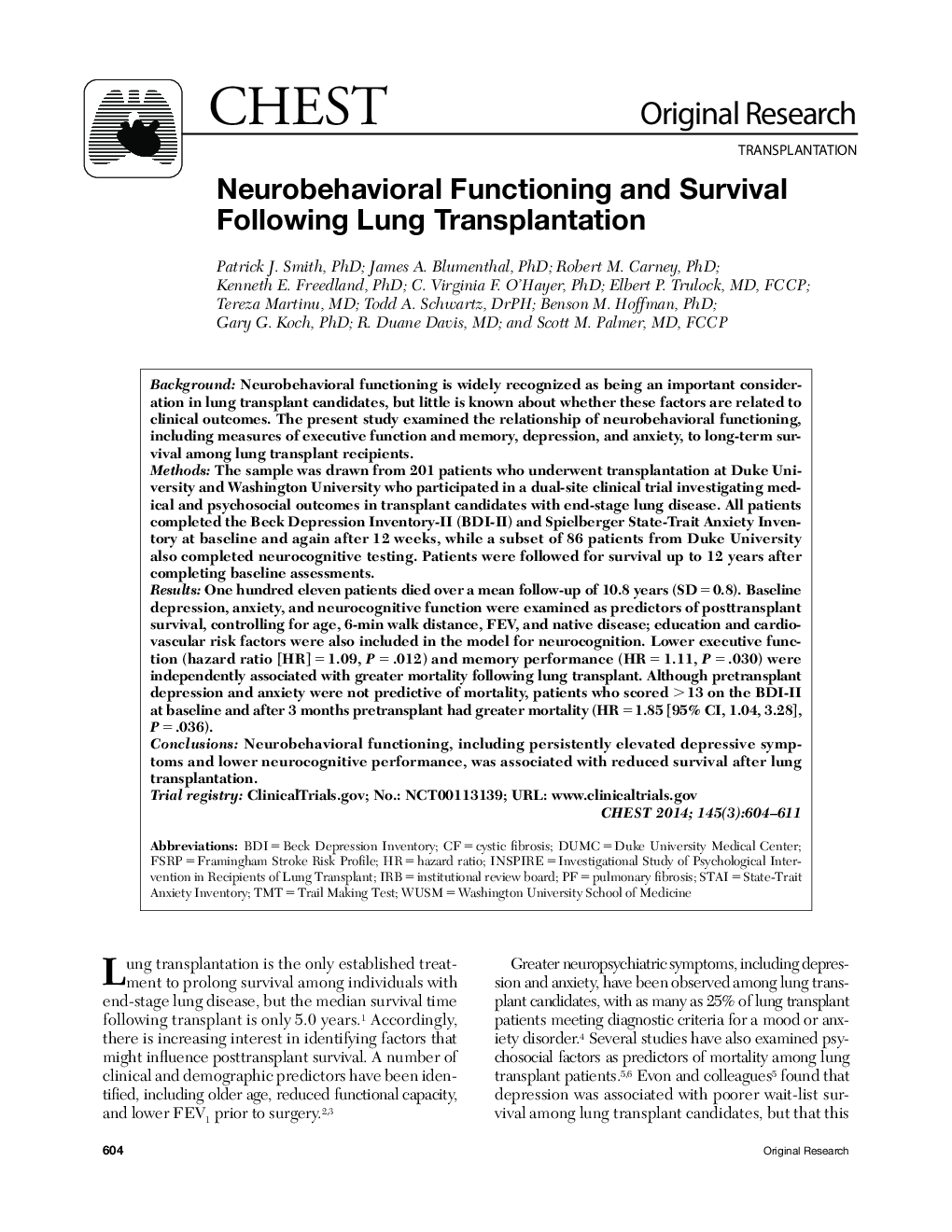| کد مقاله | کد نشریه | سال انتشار | مقاله انگلیسی | نسخه تمام متن |
|---|---|---|---|---|
| 2900031 | 1173316 | 2014 | 8 صفحه PDF | دانلود رایگان |
BackgroundNeurobehavioral functioning is widely recognized as being an important consideration in lung transplant candidates, but little is known about whether these factors are related to clinical outcomes. The present study examined the relationship of neurobehavioral functioning, including measures of executive function and memory, depression, and anxiety, to long-term survival among lung transplant recipients.MethodsThe sample was drawn from 201 patients who underwent transplantation at Duke University and Washington University who participated in a dual-site clinical trial investigating medical and psychosocial outcomes in transplant candidates with end-stage lung disease. All patients completed the Beck Depression Inventory-II (BDI-II) and Spielberger State-Trait Anxiety Inventory at baseline and again after 12 weeks, while a subset of 86 patients from Duke University also completed neurocognitive testing. Patients were followed for survival up to 12 years after completing baseline assessments.ResultsOne hundred eleven patients died over a mean follow-up of 10.8 years (SD = 0.8). Baseline depression, anxiety, and neurocognitive function were examined as predictors of posttransplant survival, controlling for age, 6-min walk distance, FEV, and native disease; education and cardiovascular risk factors were also included in the model for neurocognition. Lower executive function (hazard ratio [HR] = 1.09, P = .012) and memory performance (HR = 1.11, P = .030) were independently associated with greater mortality following lung transplant. Although pretransplant depression and anxiety were not predictive of mortality, patients who scored > 13 on the BDI-II at baseline and after 3 months pretransplant had greater mortality (HR = 1.85 [95% CI, 1.04, 3.28], P = .036).ConclusionsNeurobehavioral functioning, including persistently elevated depressive symptoms and lower neurocognitive performance, was associated with reduced survival after lung transplantation.Trial registryhttp://ClinicalTrials.gov; No.: NCT00113139; URL: www.clinicaltrials.gov
Journal: Chest - Volume 145, Issue 3, March 2014, Pages 604–611
